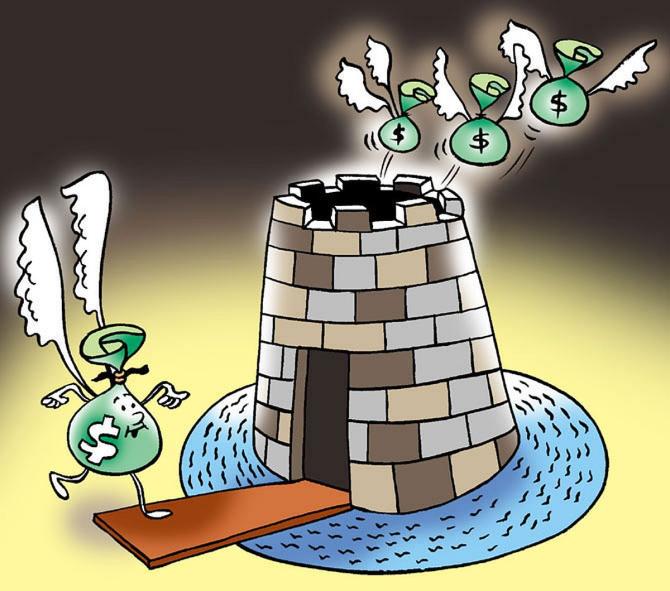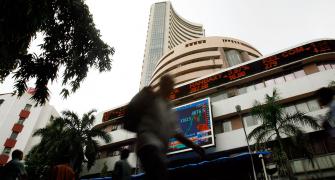Foreign portfolio investors (FPI) have pulled out $3.5 billion from India’s equity markets so far this month.

The selling comes on the back of election-induced volatility and the rotation of flows from India to China, where stocks are available at half the valuations.
If the selling pressure remains at the current level, this will be the highest FPI pullout since January 2023.
Traders are getting increasingly anxious about the incumbent National Democratic Alliance regime’s margin of victory in the ongoing Lok Sabha elections and its impact on policy continuity.
India Vix, a gauge of market volatility, rose to 20.6 this month.
Since the beginning of the elections, it has gained 47 per cent.
“There could be modest knee-jerk weakness in forex and risk assets if the Bharatiya Janata Party (BJP) loses some seats and maintains a majority,” wrote MUFJ in a note.
“Conversely, a greater seat share win by the BJP compared with 2019 would increase the ability to pass more contentious structural reforms in land, labour, and the agriculture sector and will be perceived much more positively by markets, with the rupee and risk assets likely rallying in the aftermath.”
The US Federal Reserve's rate cuts trajectory has also contributed to investor jitteriness.
The uncertainty surrounding these cuts has led some investors to consider moving their money out of the emerging markets, mainly if higher rates are available in the US with dollar-denominated investments.
However, the bets on rate cuts have revived after the latest US inflation data.
“Before May, the outcome from the US was that they were on the cusp of a rate cut, whereas in May, the interest rate cut is postponed.
"This is the one that has a major impact on flows.
"As long as the higher for longer interest rates outlook exists, FPI flows won't come back in a hurry,” said UR Bhat, co-founder of Alphaniti Fintech.
Analysts said investors want to keep some dry powder ahead of the result announcement on June 4.
The low voter turnout in the initial phases is being equated in some quarters to the absence of a wave in favour of the ruling party/alliance.
“This election, we believe, is not a wave election where a single dominant issue or theme is driving the voter sentiment and reckon the much-talked-about drop in voter turnout in 2024 could be an interplay of various factors and may not necessarily tilt the scales in favor of any one party,” said a note by Investec.
Analysts said the uncertainties have made Chinese stocks more attractive over the expensive Indian equities.
Despite the recent correction, the Nifty is trading at a price-to-earnings ratio of 22 against its 10-year average of 23.2.
“China was beaten down badly, and some funds think it has gone too far, and they are putting some money in, but one is not sure how long this good run will continue,” said Bhat.
The Shanghai Composite Index has rallied 15 per cent from its 2024 lows in February.
Yet, the index is available at a 12-month forward P/E of just 14.6x.
In March, FPIs invested nearly $5 billion in Chinese equities.
China releases the FPI data with a lag, and hence the latest figures are not available.
Market players believe overseas funds will only come back in a big way after the first full-fledged Budget presented by the new government.
“If the ruling party does well, there will be some euphoria, but the new government’s first Budget is always the worst for markets and in terms of taxation.
"So, markets will continue to correct till Budget proposals play out, and by that time, the global economic situation will settle down, and we can expect some flows after that,” Bhat said.










